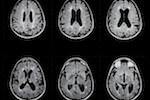Making A Diagnosis
It must be made clear from the outset that there is no single test which can be carried out which will positively diagnose MS with 100% accuracy. For this reason people, with MS often find that they are in the dark as to the nature of their illness for some time, as the symptoms which present will often be vague and could be attributed to a number of other, different conditions. It is therefore fairly common for a period of time to elapse before a diagnoses can be made. The clinical requirement is for there to have been at least two attacks affecting different areas of the central nervous system, occurring attwo different times, at least one month apart.
Several tests and procedures are needed to establish a diagnoses of MS and they will include the following investigations. Medical history Investigation for MS will normally start with a visit to your GP, who will ask for a medical history including details of past signs and symptoms. Whilst the type ofsymptoms may suggest MS, a full medical examination will be required to confirm the diagnoses.
Neurological examination
 The first role of the neurologist is to test for abnormalities in nerve pathways. These normally present themselves by change in eye movements, co-ordination, weakness, balance disturbance, unusual sensations, speech difficulties and reflexes. At this stage, the examination cannot conclude what is causing the abnormality and other possible causes have to be eliminated. Testing of visual and auditory evoked potentials These are tested by attaching electrodes to the scalp and measure brain waves responding to visual and auditory stimuli. Normally, the brains response to such stimuli is almost instantaneous, but when demyelisation hasoccurred a, delay in the response is usually apparent.
The first role of the neurologist is to test for abnormalities in nerve pathways. These normally present themselves by change in eye movements, co-ordination, weakness, balance disturbance, unusual sensations, speech difficulties and reflexes. At this stage, the examination cannot conclude what is causing the abnormality and other possible causes have to be eliminated. Testing of visual and auditory evoked potentials These are tested by attaching electrodes to the scalp and measure brain waves responding to visual and auditory stimuli. Normally, the brains response to such stimuli is almost instantaneous, but when demyelisation hasoccurred a, delay in the response is usually apparent.
Lumbar puncture
 After a local anaesthetic is given to numb the skin, a needle is inserted into the back to withdraw a small amount of the cerebrospinal fluid (the fluid which flows around the brain and spinal cord). This is then tested for the presence of antibodies, which can occur with MS. This test is not in itself conclusive, as these antibodies can also occur in neurological conditions other than MS. Whilst uncomfortable, this procedure is not normally painful.
After a local anaesthetic is given to numb the skin, a needle is inserted into the back to withdraw a small amount of the cerebrospinal fluid (the fluid which flows around the brain and spinal cord). This is then tested for the presence of antibodies, which can occur with MS. This test is not in itself conclusive, as these antibodies can also occur in neurological conditions other than MS. Whilst uncomfortable, this procedure is not normally painful.
Magnetic Resonance Imaging (MRI)
 The MRI scanner takes detailed pictures of the brain and spinal cord in which plaques or lesions may be seen. Whilst this is the only test in which the lesions can be seen, it cannot be regarded as conclusive because other conditions can cause identical abnormalities. There are lesions found, in otherwise healthy people particularly the elderly, which are not related to any ongoing disease process. Whilst it is also true that not all lesions will be picked up by the scanner, the evidence provided by the MRI, when taken, in conjunction with the supporting evidence from the medical history and the neurological examination will be a very significant indicator towards confirming the diagnoses of MS.problems with short term memory, concentration, judgment or reasoning. Whilst some of these symptoms are immediately obvious, others such as fatigue, altered sensation, memory and concentration problems are often hidden symptoms. Above are shown some symptoms which may occur. However, it must be remembered that people with MS have a normal life expectancy: eighty per cent will not be totally reliant on a wheelchair. Many people affected with MS canand do experience a full life, including love, marriage, children, work and happiness.
The MRI scanner takes detailed pictures of the brain and spinal cord in which plaques or lesions may be seen. Whilst this is the only test in which the lesions can be seen, it cannot be regarded as conclusive because other conditions can cause identical abnormalities. There are lesions found, in otherwise healthy people particularly the elderly, which are not related to any ongoing disease process. Whilst it is also true that not all lesions will be picked up by the scanner, the evidence provided by the MRI, when taken, in conjunction with the supporting evidence from the medical history and the neurological examination will be a very significant indicator towards confirming the diagnoses of MS.problems with short term memory, concentration, judgment or reasoning. Whilst some of these symptoms are immediately obvious, others such as fatigue, altered sensation, memory and concentration problems are often hidden symptoms. Above are shown some symptoms which may occur. However, it must be remembered that people with MS have a normal life expectancy: eighty per cent will not be totally reliant on a wheelchair. Many people affected with MS canand do experience a full life, including love, marriage, children, work and happiness.
